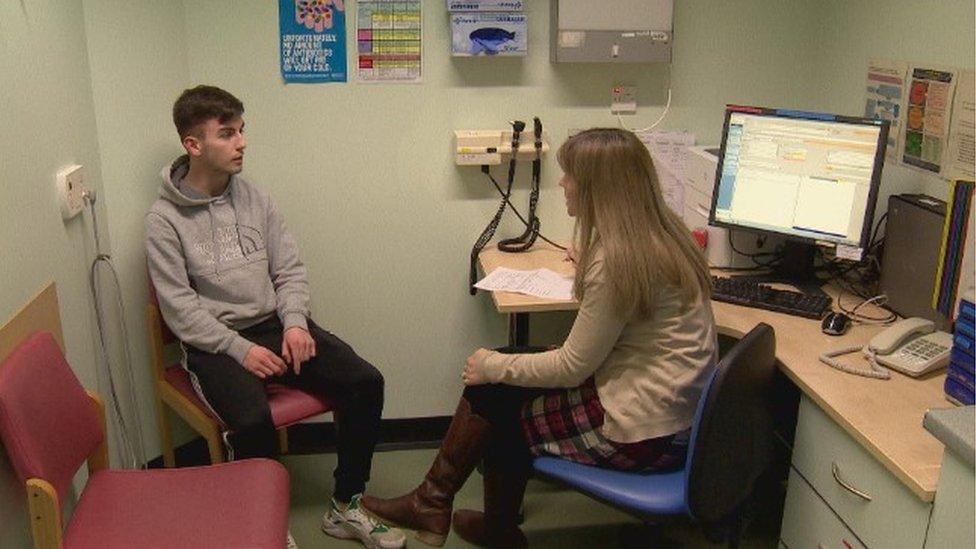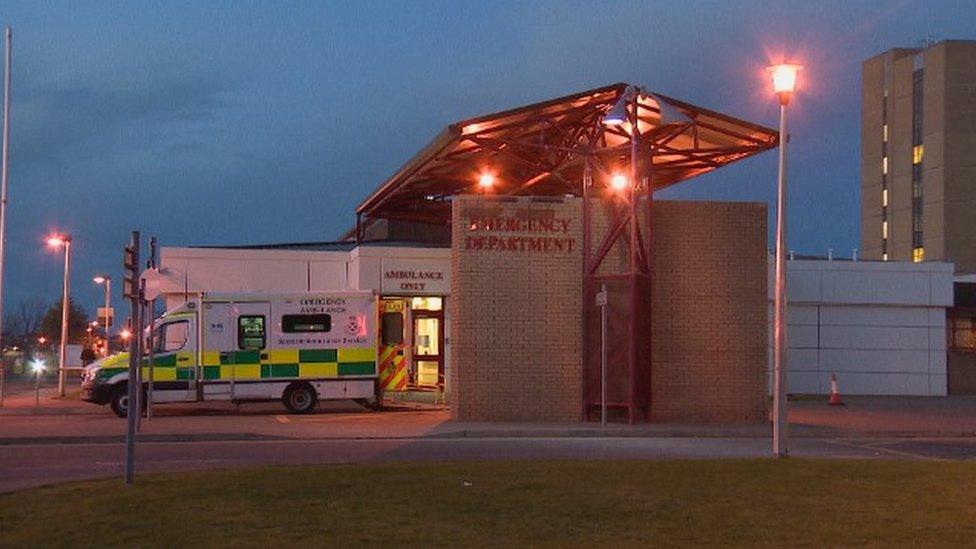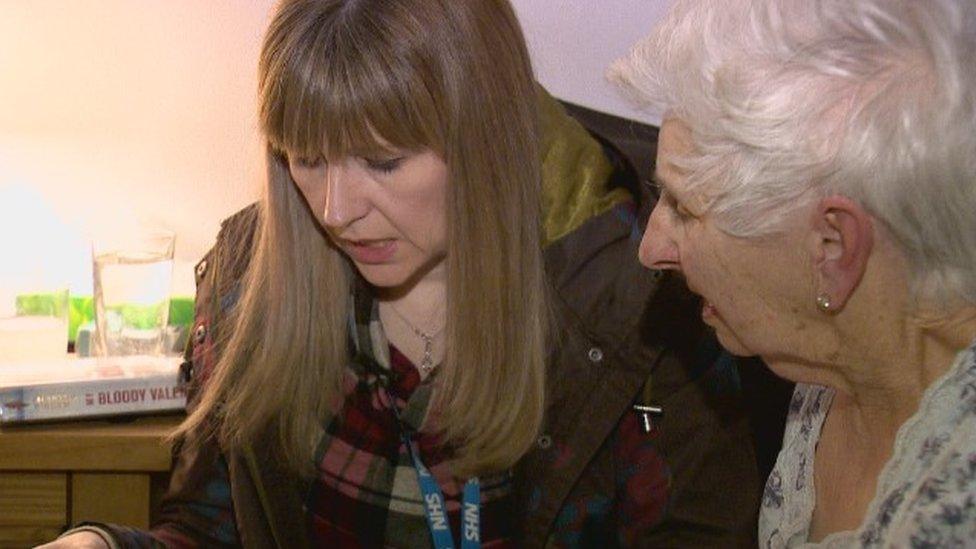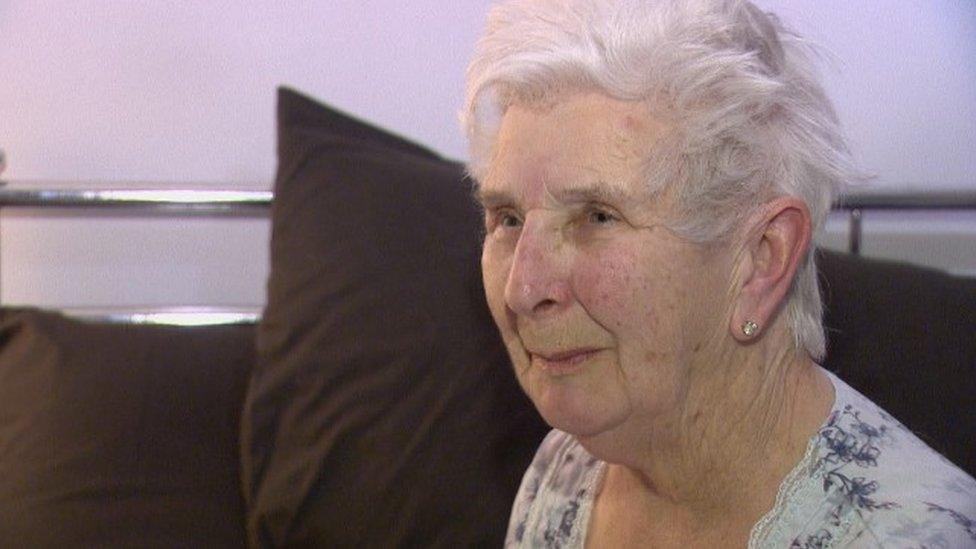Administering care in the community
- Published

Louise Stewart carries out many of the roles of a GP
In the Highlands the shortage of GPs has prompted the health board to develop a new approach to out-of-hours care. Highly-skilled nurse practitioners provide a service for 85,000 patients across an area of 1,000 square miles. Our health correspondent, Lisa Summers, spent a night shift with the team.
It is an odd feeling walking into work when the rest of the world is heading home for tea. But that is the way it is for the small out-of-hours team based at Raigmore hospital.
From 18:30 to 07:00 and across the weekend they respond to calls to the NHS 24 helpline. With cameraman Brian Ashman, I was shadowing advanced nurse practitioner Louise Stewart for a typical Tuesday night. Although in truth, there is no such thing as a typical night.

Many of the patients have to go to A&E as the medical wards are full
Within an hour, Louise, her driver and trainee hit the road. First stop Drumnadrochit. An elderly woman with dementia has fallen.
After assessing her, Louise decides she needs to be admitted to hospital. Only problem is there are no beds. The medical ward at Raigmore is full which means an ambulance will be called upon to transfer the frail, confused woman into A&E to wait for a bed to become free.
Later we meet 85-year-old Janet Lamont. She is staying with her son and daughter-in-law in Inverness. She has become breathless and is feeling unwell.
Remote areas
Louise was able to put her on a nebuliser and give her medication to help get her temperature down.
Within 20 minutes, Janet is sitting up. Her anxious, grey face, transformed: "They do a marvellous job, a great job. I don't know what we'd do without them," she tells me.
The nurse practitioners are highly skilled and can do many of the things a GP would do.

Louise Stewart put Janet Lamont on a nebuliser and gave her medication

Janet Lamont said the nurses do a "marvellous job"
Louise says most of the time people are happy to get help, particularly in the more remote areas. In the main, she says very few people question why they are not seeing a doctor.
The team covers an area that stretches from Fort William through to Cromarty on the Black Isle. Much of the night can be spent in the car, but tonight most of the calls are local.
Until midnight a GP works with Louise. There is also a community psychiatric nurse who deals with cases right across the Highlands.
Supporting families
After midnight medical back-up comes from the emergency room doctor. I'm surprised at how small a team it is and how busy it is. And I see for myself the pressures on the staff. No beds in the ward, means a patient taking up a bed in A&E. I'm told that on the previous two nights A&E was full too.
By 03:00 Louise has made five house calls and treated a number of patients at the hospital. As she leaves a local nursing home, another call comes in.
This time, it is from a cancer help line, a patient nearing the end of their life. The team visits this patient twice over the next three hours, administering medication and pain relief, but also helping to comfort and support family and friends.
The way the service works in the Highlands has evolved because of recruitment shortfalls but it seems to work.
The local community are getting care and it can avoid unnecessary hospital admissions. The up-skilled nurses enjoy it too.
When I first arrived, I met up with Evie Jack the lead nurse for the service based at Raigmore - she tells me that you do have to make sacrifices but it is worth it.
"The reason we've become nurse practitioners is because we probably like a bit of a challenge and this job gives us a challenge every single day," she says.
- Published2 March 2017

- Published15 January 2017
